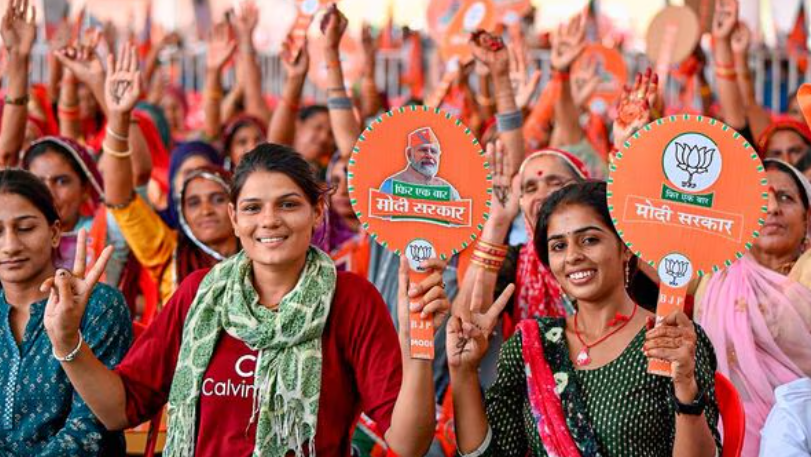Elections2024 – Why Modi Ji is people’s top pick?


By: @bajajvivek
The essence of a robust democracy is evident when leaders are elected through fair and open elections by the populace. With Mr. Modi securing two landslide victories, it’s indicative that he has garnered widespread support through effective governance. The legal scrutiny faced by some of his opponents underscores adherence to the rule of law. Doubting the integrity of the Indian Judiciary seems unwarranted given its pivotal role in upholding justice.
Moreover, among India’s 31 states, 12 are governed by opposition parties, a testament to the diversity of political representation within the nation’s democratic framework.
Addressing historical context, the demolition of a 16th-century mosque, often depicted as an act of ‘Hindu zealotry,’ was viewed by many as reclaiming a sacred site, the birthplace of the Hindu deity Ram, steeped in religious significance. There was enough evidence to prove the existence of a Hindu temple at the site which was demolished to build the mosque and the judiciary decided to allow Hindus to build a temple at the place.
Turning to Arvind Kejriwal’s situation, the incarceration of his ministers and his own legal battles underscore the judiciary’s commitment to combatting corruption, irrespective of political affiliation.
Regarding the freezing of Congress party accounts, it’s essential to acknowledge that legal disputes, not political bias, led to the temporary constraint on funds. Out of some US$ 120 million which were available in the various bank accounts of the congress party, only US$ 20 million was put under lien by the Income-tax authorities.
Critics often assail Mr. Modi, yet the presence of a vocal opposition underscores the vitality of press freedom. Recent revelations of tax discrepancies by organizations such as the BBC underscore the need for impartial scrutiny.
The Pew survey indicating widespread public approval of Mr. Modi, including among minorities, challenges narratives of exclusion. The Modi government’s focus on socio-economic upliftment, rather than tokenism, has resonated even among marginalized communities.
Ultimately, the upcoming elections will reflect the true sentiments of the Indian public, reaffirming their sovereignty and dispelling unfounded fears of democratic erosion. The so-called intellectuals must respect the diversity of opinions within the electorate, a hallmark of genuine democracy.
DISCLAIMER: The author is solely responsible for the views expressed in this article. The author carries the responsibility for citing and/or licensing of images utilized within the text.
